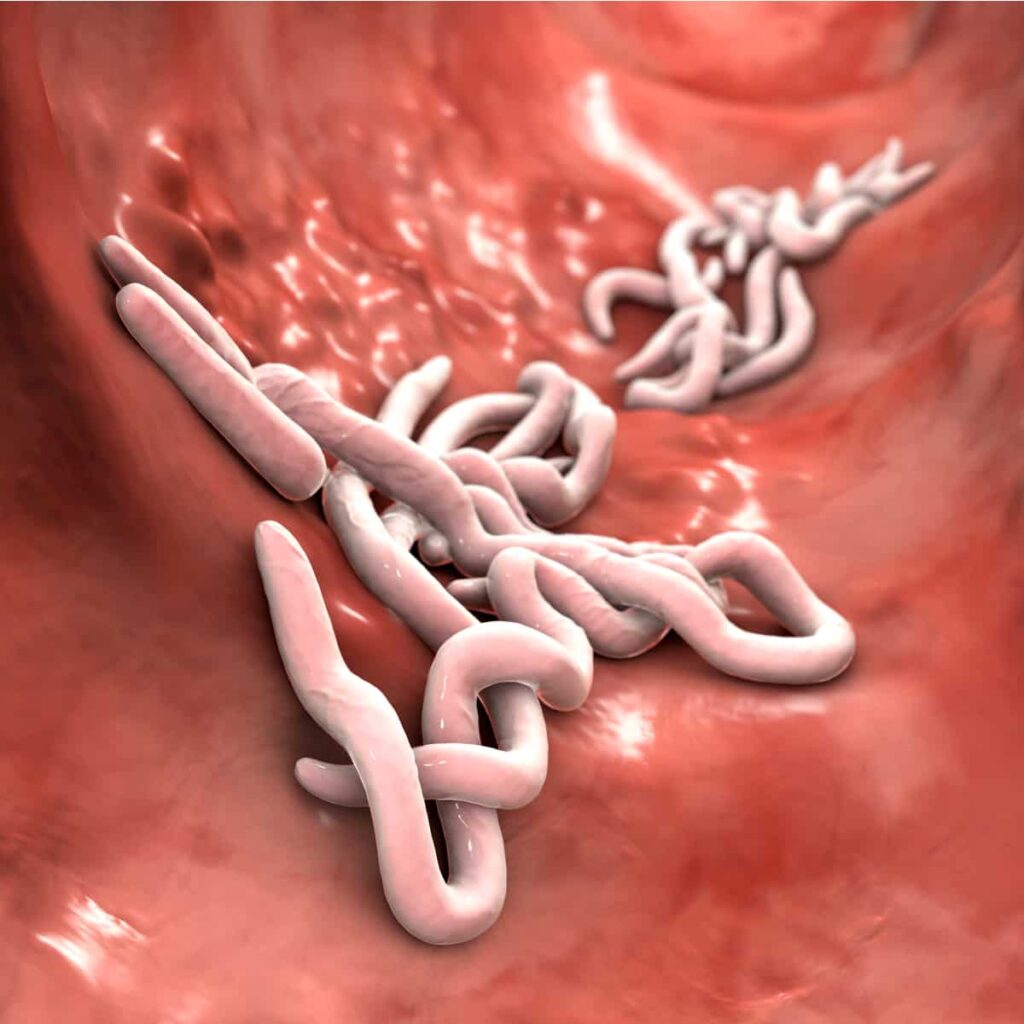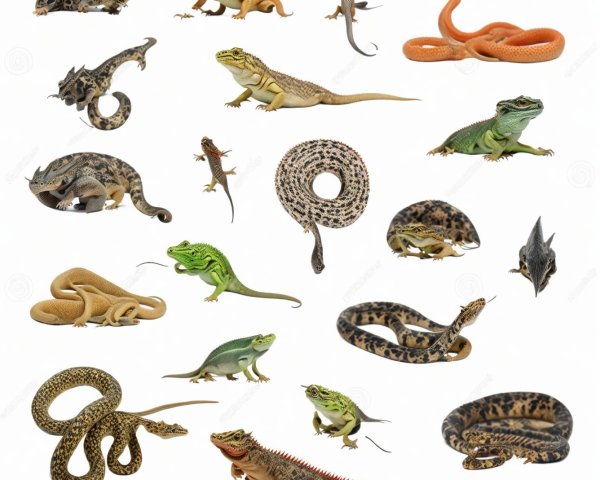Worms or Parasites That Can Make Your Reptile Sick. This leads to the growth of parasites such as nematodes, cestodes, trematodes, and protozoa in reptiles. Nematodes cause weight loss and affect the gastrointestinal system; The uterus or lungs may be damaged. Cestodes, or tapeworms, enter the host’s digestive tract and cause malnutrition. Trematodes damage organs such as the liver and kidneys, causing tenderness and swelling in areas of the body. Bacteria like coccidia induce diarrhea and dehydration in animals.
Cestodes (tapeworms) like Diphyllobothrium are harmful to reptiles because they cause weight loss and digestive problems. These bacteria adhere to the intestinal walls and feed on minerals, leading to malnutrition. Tapeworms should be tested on slow reptiles, who have no appetite or have abnormal urine.
Reptiles are at risk for parasites and diseases. The roundworm influences a human with the aid of causing a loss of weight and making her or him sense fatigued. Tapeworms result in decreased appetite and consequently low weight. Some protozoan illnesses are sicknesses due to Coccidia which results in diarrhea and weakness within the infected animals, while Giardia ends in belly pain, weight loss, and many other headaches.
How do I determine whether my reptiles have worms or other intestinal parasites?
Reptiles with intestinal parasites may show the following signs and symptoms.
- Poor appetite
- Weight loss
- Vomiting or regurgitation
- Abnormal appearing droppings
- Diarrhea
Reptile vets also are informed in diagnosing parasites via fecal examinations where a sample of your reptile’s feces is smeared on a slide and looked at underneath the microscope for eggs and ova. To have the droppings analyzed, what is usually recommended is to get a sparkling pattern place it in a sealed field, and take it to your veterinarian for a day. In the same manner if you are wearing your reptile to the vet, bring a sparkling feces sample with you.
Types of Intestinal Parasites
Cryptosporidium
Like different intestinal parasites, it causes excessive diarrhea and weight loss. Parasitic illnesses of reptiles. Merck Veterinary Manual. It does not create the worms located in feces. Most puppy reptiles do not fare well when infected with this shape of coccidia protozoa, which is commonly invisible below an ordinary microscope. If you or your veterinarian suspect a cryptosporidium infection, a selected check needs to be carried out to affirm it.

Pinworms
This ubiquitous nematode trojan horse, often referred to as threadworm or seatworm, is invisible to the human eye. It is herbal in your reptile to have pinworms because they commonly get them from ingesting inflamed mice or insects. Your veterinarian might not treat your reptile for pinworm contamination until it’s far generating a problem for your puppy, inclusive of a loss of urge for food or a fecal blockage. People might also trap those worms from reptiles, so continually wash your fingers after coping with one.

Amoebas
It can only be determined in microscopy. This is any other tiny parasite that spreads through infected consuming water and food. It will bring about nausea, diarrhea, lethargy, and probable bloody stools.

Coccidia
This protozoan is a frequent parasite in pet reptiles, however, it does not always appear in feces. It does not often shed visible eggs, making diagnosis difficult, although it is generally harmless for your reptile in modest quantities. A stressful scenario may lead it to overpopulate and become a problem for your pet.
Roundworms
You can see these worms in your reptile’s excrement. Your exotic veterinarian can cure them with ease; they resemble long spaghetti-like worms.
Hookworms
These worms are not visible in your reptile’s feces, but they frequently cause bloody stools owing to the parasite’s nature. These worms “hook” onto the lining of your reptile’s intestines, resulting in blood in the feces. They are often easy to cure.
Tapeworms
These little worms resemble rice. They may be joined to create a worm, or you may simply notice the worm’s rice-like segments in the feces. As with most other parasites, they can induce weight loss.
Flagellates
Giardia and other parasites are flagellates. Reptiles can house a variety of flagellates, the majority of that are standard in modest levels. However, if your reptile shows any signs and symptoms of parasite infestation, your veterinarian can also prescribe a flea repellent.
Symptoms of Reptile Parasites
Reptiles with intestinal parasites frequently have the following symptoms:
- Poor appetite
- Weight loss
- Vomiting or regurgitation
- Abnormal appearing stools
- Diarrhea
Worms may hide in a reptile’s body but often show up in its feces or vomit.
Causes
Reptiles are liable to a whole lot of intestinal parasites. Reptile parasites range from spaghetti-like worms to tiny microbes seen only under a microscope. Even mild infections can get worse if the terrarium isn’t cleaned, and previously healthy reptiles can get infected by eating contaminated feces. In certain conditions, larvae can penetrate the reptile’s pores and skin.
Diagnosis
Worms or Parasites That Can Make Your Reptile Sick. A veterinarian will often suspect that a pet reptile has intestinal parasites based totally on the critter’s medical records, medical indicators, and physical exam. Examine warm water samples under a microscope or send them to a lab to find the bacteria and choose the best treatment.
Treatment
People use larvicides to eliminate intestinal crawlies. Some medicines or treatments are successful against specific types of tiny parasites, whereas others do not react to any therapy.Take prescription drugs exactly as directed.Often, you need a second round of therapy to fully remove the parasite.
Living and Management
Worms or Parasites That Can Make Your Reptile Sick. When you can’t remove parasites from a reptile’s home, you should deworm it regularly. Another crucial stage in terrarium management is to quarantine young reptiles for three months before exposing them to healthy reptiles (or until properly dewormed).
Prevention
Aside from keeping its habitat clean, an excellent strategy to keep your reptile parasite-free (or reduce the number of parasites already there) is to take it to a veterinarian regularly for exams and dewormings. Furthermore, feeding carnivorous reptiles an exclusive diet of pre-killed frozen food might assist in avoiding the introduction of new parasites in your reptile.
Conclusion
Different reptiles have distinct diseases resulting from several parasites such as nematodes, cestodes, trematodes, protozoa, and flagella. Some familiar parasitic infections that lead to weight loss, poor appetite, and problems with digestion include tapeworms, roundworms, and, finally, pinworms. Examples of protozoa include coccidia, and cryptosporidium which cause diarrhea and other complications in the health of the users.
Specialists in animal diseases identify these parasites through the identification of fresh fecal samples using microscopes. The treatment of this condition entails the use of particular anthelminthic or deworming drugs, which may sometimes require taking more than one dose. It is therefore important to have periodic check-ups from the Vet, keep the habitat clean, and isolate new reptiles from other stock to reduce or control parasitic diseases.

